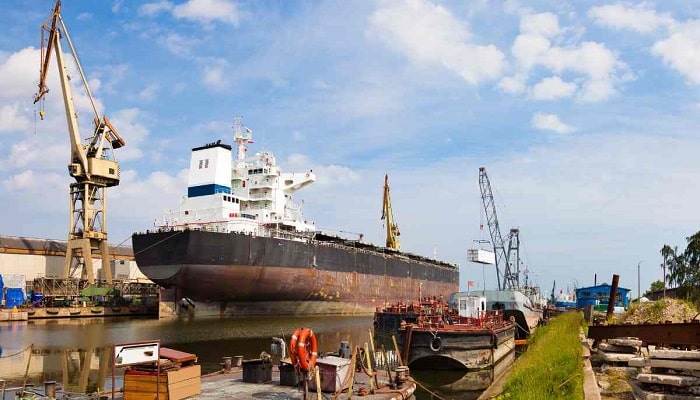

Due to the reluctance of Bangladeshi banks to issue letters of credit due to the continued shortage of US dollars, industry experts say that the country’s scrap metal imports have fallen to an all-time low in four years to 2022.


In addition, the cost of shipping has increased due to the US embargo that prevented imports from the Russian-Ukrainian region. As a result, many local suppliers have bought fewer items than in the past, said Taslim Uddin, owner of the KR boat recycling centre in Chattogram’s Sitakunda Upazila.
A total of 151 pieces were imported in 2022, a decrease of almost 27% compared to 2019. According to data from the Bangladesh Ship Breakers and Recyclers Association (BSBRA), the total volume of imported shipbreakers has decreased by almost 52% over the same period.
According to data from the NGO Shipbreaking Platform, Bangladesh tops the list of shipbreaking countries in 2021, ahead of Pakistan and India, although only 45 of Chattogram’s 158 shipyards are currently operational.
According to the latest statistics of the platform, published on February 1, 443 ships and commercial equipment will be sold for scrap by 2022.
On the shores of Bangladesh, India and Pakistan, 292 large oil tankers, bulk carriers, floating platforms, cargo carriers and passenger ships are finally grounded in an unhealthy and deadly way.
In addition, he revealed that during the demolition of these boats in Chattogram, at least 10 workers died, and 33 others were injured. Local reports also said three were injured in Gadani, Pakistan, and three died in Alang, India.
Some of these happened on the ships of well-known companies, such as Berge Bulk, Sinokor and Winson Oil. The NGO Shipbreaking Platform is a global network of NGOs based in Belgium that seeks to remedy the environmental damage and human rights violations caused by shipbreaking practices.
Local recyclers say mills and boat builders are the ones who use the materials from the wreckage. In Bangladesh, imports meet about 70% of steel demand, while the remaining 30% comes from domestic production.
The lack of garbage machines in the current economic situation has had a negative impact on business, according to Philip Barua, brand and communications manager at GPH Ispat Bangladesh.
According to him, many ports across the country are recording losses this year due to the high increase in prices in the US dollar due to the devaluation of the taka.
The US financial crisis has caused the collapse of about 30 ports in the past year, costing 10,000 jobs, according to data from BSBRA and the Bureau of Shipping. There are 185 ports mentioned in the Chattogram, but only about 50 are active at any given time.
As the import of steel decreases, 30 of them are now closed, said BSBRA chairman Md Abu Taher, who spoke to the Daily Star. “The root of the problem of the ship-breaking industry is the dollar issue. The war prevents us from importing junk from the Russian belt,” he said.
In addition, Taher said that due to rising shipping costs, there are fewer ships available for sale for scrap internationally, making it difficult for owners to report their ships as abandoned.
According to the coordinator of the Shipbreaking Union Forum, Tapan Dutta, at least 10,000 people in the sector have lost their jobs as a result. “The owners have not paid most of their workers because of the decrease in their income. If this continues, all the garbage will be closed,” he added.
Reference: The Daily Star, The Hindu Business Line










We believe that knowledge is power, and we’re committed to empowering our readers with the information and resources they need to succeed in the merchant navy industry.
Whether you’re looking for advice on career planning, news and analysis, or just want to connect with other aspiring merchant navy applicants, The Marine Learners is the place to be.